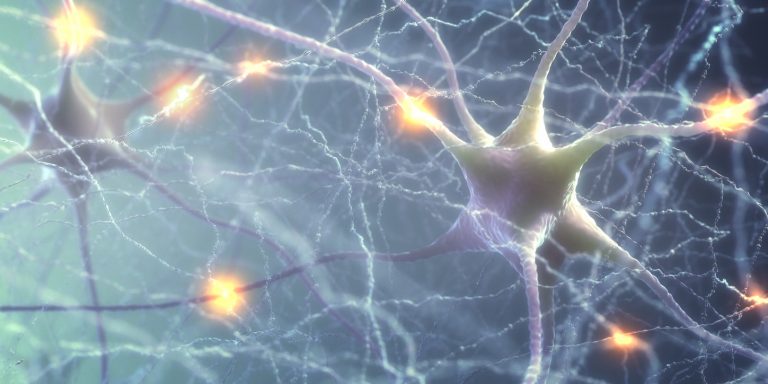What do Allergies, Acne, & Acid Reflux Have in Common?
What do Allergies, Acne, & Acid Reflux Have in Common?
Symptoms such as acid reflux, allergies, and acne have more in common than you might think.
What’s the connection you ask? The gut, of course!
Although there are many causes for these particular symptoms, issues with digestion, inflammation, and absorption can all lead to inflammation and immune activation in areas beyond the digestive tract.
In this article, we’ll discuss how this works, and offer some actionable self-care tips and herbal supplements you can use to stop this problem in its tracks.
Let’s get started.
The Gut Connection: How it Works
The gut’s job to break down the food we eat into tiny pieces before its absorbed into the bloodstream where its used to produce energy, build new cells, and much more.
But the gut also has another critical job — to keep unwanted compounds out of the bloodstream.

This complicates things because the gut barrier needs to determine what to let through, and what to keep out.
If it lets the wrong things into the bloodstream it can trigger a host of reactions including
- Inflammation
- allergic reactions
- Acne & skin irritation
- fatigue,
- low immunity, and;
- a whole host of other problems.
The Gut & Acid Reflux
I’d like to start with acid reflux because this is often the start of issues further down the digestive tract.
The first stage of the digestion process happens in the brain—called the cephalic response. This is what happens when you see or smell tasty food and begin salivating. It’s the body’s way of kickstarting the digestive process by telling the digestive organs to begin secreting enzymes in preparation for the food we’re about to eat.
Believe it or not, most people with acid reflux, experience low stomach acid secretion.
There are many potential causes for low stomach acid, including:

- Diets high in processed foods
- Eating on the run
- High stress lifestyle
- Vitamin and mineral deficiencies
- Side-effects of medications
- Age (acid production declines with age)
Low stomach acid will often lead to gastric reflux—which most people mistake as the opposite issue—having too much stomach acid.
The obvious solution is to take an antacid—but this is a mistake for most, as it only lowers stomach acidity even further, making the problem worse.
You’re probably wondering; “how could low stomach acid cause reflux?”
Let me explain.
There’s an opening at the top of the stomach controlled by specialized muscles—called the pyloric sphincter. It works similarly to the aperture on a camera, increasing or decreasing the size of the opening as needed.
When we eat food, the pyloric sphincter is open wide to allow the contents to enter the stomach. Once we’ve finished eating, the abundance of stomach acid triggers the muscle to close up, sealing the contents inside the stomach.
If we don’t have enough stomach acid, the pyloric sphincter remains open, allowing the stomach contents to slosh around—causing gastric reflux.
But it doesn’t end here. Low stomach acid can result in problems further down the digestive tract as well, including:
- Indigestion
- Inflammation and irritation
- Poor nutrient absorption
- Infections
- Leaky gut
- Dysbiosis
All of these issues can be linked with problems like allergies, acne, and various other symptoms around the body.
The Gut & Allergies
Common allergy symptoms include runny nose, itchy eyes, skin rashes, fatigue, and scratchiness in the back of the throat. Most people shrug these symptoms off as “seasonal allergies”.
But there’s a more intimate relationship going on in many of these cases — inflammation and leakage of protein molecules through the gut barrier trigger an immune response.

If the gut barrier becomes irritated too much, too often, or for too long, it can start to affect its ability to function properly.
There are a lot of things that can cause the gut barrier to break down:
- Low stomach acid may cause undigested food to ferment and rot in the gut
- High stress can inhibit digestive secretions
- Food allergies can trigger inflammation in the gut lining
- Vitamin deficiencies can prevent the transport of nutrients through the gut barrier
- Infection of harmful microbes can damage the integrity of the gut barrier
Any damage to the gut barrier integrity may allow molecules or organisms to pass through the gut barrier and into the bloodstream.
Once in the bloodstream, it becomes the immune systems job to detect and flush them out of the body. When particles are detected in the blood that shouldn’t be there, the immune system goes into red alert — triggering allergic reactions as immune cells scramble to take care of the problem.
In most cases, the problem continues to worsen as the integrity of the gut barrier deteriorates. More and more compounds leak through the gut barrier into the blood — overwhelming the immune system.
This can cause long-term allergies that don’t ever seem to go away. It can make it feel like we’re sick with a cold for weeks at a time, or make us think we’re allergic to things that we aren’t.
The Gut & Acne
Another issue that often arises from the gut that most people don’t consider is acne.
Acne is a combination of three things:
- The oil glands on the skin become sticky and clogged
- Bacteria living inside these glands begin to grow out of control
- Inflammation is triggered by the body to keep the infection contained
The problem starts when the oil glands become clogged.

When we have unwanted compounds floating around in our bloodstream from a dysfunctional gut barrier, the body needs to figure out another way to get rid of these compounds.
Most of these unwanted compounds are sent to the kidney where we can eliminate in urine, while others are sent back to the digestive tract to be eliminated there instead.
One problem is that these toxins gets reabsorbed through the same leaky sections in the gut anyway instead of being effectively eliminated.
The last option the body has to eliminate some of these compounds is through the oil glands on the skin.
If these compounds are irritants to the body, it causes the samne irritation to the pores as they do anywhere else in the body. This significantly increases the chances of clogged pores, resulting in bacterial growth, inflammation, and acne.
This is why acne tends to get worse whenever you let your diet slip. The more processed foods you eat, the more of these irritating compounds build up and end up in the bloodstream. and eventually the pores of the skin.
What You Can Do To Regain Control Over Your Digestive Health
The gut has a strong influence over the health of our entire body. It’s one of the few places inside the body that never comes into direct contact with elements from our environment. Therefore, maintaining the barrier designed to keep harmful compounds out of the blood is of the utmost importance.
Here are the three main ways to achieve this:
1. Stay Away From Processed Foods
We’ve all heard it a million times—but it’s true. Stay away from processed foods.
As I’ve mentioned, the digestive process begins before we even put the food in our mouth. The eyes and nose detect the food we’re about to eat and anticipate what it will need to begin breaking it down.
The process triggers stomach acid secretion along with a myriad of other enzymes designed to break down carbohydrates, fats, and proteins.
If we continue to eat refined and packaged foods, it’s becomes difficult for our body to anticipate the meal. Instead, the food we eat goes undigested in the stomach, allowing it to fermentation in the lower down in the digestive tract — ultimately leading to damage of the gut barrier.
Adding insult to injury, these foods often contain irritants themselves, further adding to the irritation and inflammation taking place in the gut.
2. Take Time To Eat Your Meals
Another major cause for low stomach acid secretion and gut inflammation is always eating on the run.
Similar to the point above, when we eat in a hurry it doesn’t give the stomach enough time or focus to stimulate the digestive process. The food ends up sitting in the stomach undigested, wreaking havoc to the gut barrier below.
Take the time to sit down, and enjoy every bite of your meal. Make an effort to taste the delicious flavors of the meal you’re eating to give the brain the information it needs to anticipate what it needs to break it down efficiently.
This concept is highly underrated in modern society—everyone eats their food in the car, on the walk back to the office, or while spending the entire duration of the meal inattentive on their phones or computers.
3. Pay Attention to Allergic Reactions to Foods
Allergies to food is common these days. We may be allergic to something and not even know it!
Whenever something enters the gut that we’re allergic to, even if the allergies are only mild, it will trigger an immune response. This immune response taking place in the gut can cause inflammation to the gut lining.
This inflammation may be low-grade and go unnoticed for long periods of time. If we continue to eat these foods, the inflammation will get worse—leading to the gradual loss of gut barrier integrity. Eventually, the inflammatory molecules driving the reaction will enter the bloodstream, triggering allergic reactions elsewhere in the body as well.
The best way to eliminate this issue is to spend some time analysing our diet to find out what’s causing the issue.
There are a few ways to do this, which can be done at home, or with the help of a health practitioner knowledgeable about gut allergies.
Here’s how to do it:
- Keep a journal of the food you eat, and any symptoms you experience for at least a week. Sometimes we can use this information to correlate meals with symptoms.
- Take a food allergy test. There are a few different tests you can take to identify potential allergies.
- Try an elimination diet. These diets work by eliminating all of the common sources of food allergens—like dairy, eggs, refined sugars, gluten, and processed meats. After a few weeks, we can begin reintroducing food items one by one until the symptoms return.
4. Use Herbs to Support the Gut Barrier
There are a few really great herbal medicines that can be used to support the integrity of the gut barrier and help restore a loss of stomach acid secretion.
A. Deglycyrrhizinated licorice (Glycyrrhiza glabra)
Licorice has a long history of use for adrenal disorders (like chronic stress), and dysfunctions of the gut barrier.
This herb is considered a demulcent, which means it has the ability to soothe irritated and inflamed sections the digestive tract, helping to restore the integrity of the gut lining [1].
Licorice comes in the form of chewable treats (real licorice, not the candy), as a tea, capsule, or tincture. Make sure to look for “deglycyrrhizinated” on the bottle for best results.
B. Meadowsweet (Filipendula ulmaria)
This herb is considered among herbalists as the “godmother of the digestive tract”. It supports the production of stomach acid, soothes irritated mucous membranes in the gut barrier and combats inflammation threatening the integrity of the gut barrier [2].
Meadowsweet is most commonly found in the form of herbal tinctures or capsules.
C. Fennel (Foeniculum vulgare)
Fennels is often used for its digestive effects. It’s been shown to increase digestive enzyme secretions in rats, including enzymes like amylase, trypsin, lipase, and bile [3] — helping to ensure food is digested fully in the intestinal tract to prevent irritation and damage to the gut barrier.
Fennel can be added to food or taken as a supplement.
D. Ginger (Zingiber officinal)
Ginger is excellent for alleviating bloating and indigestion in the gut. It works by stimulating digestive enzyme secretions in the gut [4], and speeding up the movement of food in the intestinal tract [5].
Ginger can be added to foods, taken as supplements, or consumed as a tea to alleviate nausea or digestive discomfort.
E. Chamomile (Matricaria chamomilla)
Chamomile is a popular soothing herb for both the mind and the digestive tract. It helps to ease irritated, spastic smooth muscles in the digestive tract [6].
You can drink chamomile as strong tea after a meal or before bed.
Final Thoughts: Supporting the Gut
The gut is a complex organ system that relies on the support of other organs to do its job properly.
When we eat a poor diet high in processed foods, experience long-term stress, have undiagnosed food allergies, frequently eat on the run, or any other cause for low stomach acid and inflammatory reactions in the gut — it can eventually lead to the passage of unwanted compounds and microbes from the gut into the bloodstream.
These compounds will often trigger in immune reactions which often feels like allergies. It can also cause blockages in the pores of the skin leading to acne and skin rashes. Other side-effects include fatigue, lowered immunity, and headaches.
There are many ways to restore the health of the gut, starting with the food we eat. Both the quality of the food we eat, and the way in which we eat it can have a big impact on our overall health.
There are also plenty of useful herbs that can be consumed as teas, taken as supplements, or cooked into food that support the health of our gut — allowing it to do its job to let the good stuff cross through the gut barrier, and keep the bad stuff out.
References
- Bahmani, M., Rafieian-Kopaei, M., Jelodari, M., Eftekhari, Z., Delfan, B., Zargaran, A., & Forouzan, S. (2014). A review of the health effects and uses of drugs of plant licorice (Glycyrrhiza glabra L.) in Iran. Asian Pacific Journal of Tropical Disease, 4(S2), S847-S849.
- Samardžić, S., Arsenijević, J., Božić, D., Milenković, M., Tešević, V., & Maksimović, Z. (2018). Antioxidant, anti-inflammatory and gastroprotective activity of Filipendula ulmaria (L.) Maxim. and Filipendula vulgaris Moench. Journal of ethnopharmacology, 213, 132-137.
- Vasudevan, K., Vembar, S., Veeraraghavan, K., & Haranath, P. S. (2000). Influence of intragastric perfusion of aqueous spice extracts on acid secretion in anesthetized albino rats. Indian journal of gastroenterology: official journal of the Indian Society of Gastroenterology, 19(2), 53-56.
- Platel K, Srinivasan K. (1996). Influence of dietary spices or their active principles on digestive enzymes of small intestinal mucosa in rats. Int J Food Sci Nutr, 47:55–59.
- Yamahara J, Huang QR, Li YH, Xu L, Fujimura H. (1990). Gastrointestinal motility enhancing effect of ginger and its active constituents. Chem & Pharmaceutical bulletin. 38:430–431.
- Mehmood, M. H., Munir, S., Khalid, U. A., Asrar, M., & Gilani, A. H. (2015). Antidiarrhoeal, antisecretory and antispasmodic activities of Matricaria chamomilla are mediated predominantly through K+-channels activation. BMC Complementary and Alternative Medicine, 15(1). doi:10.1186/s12906-015-0595-6







